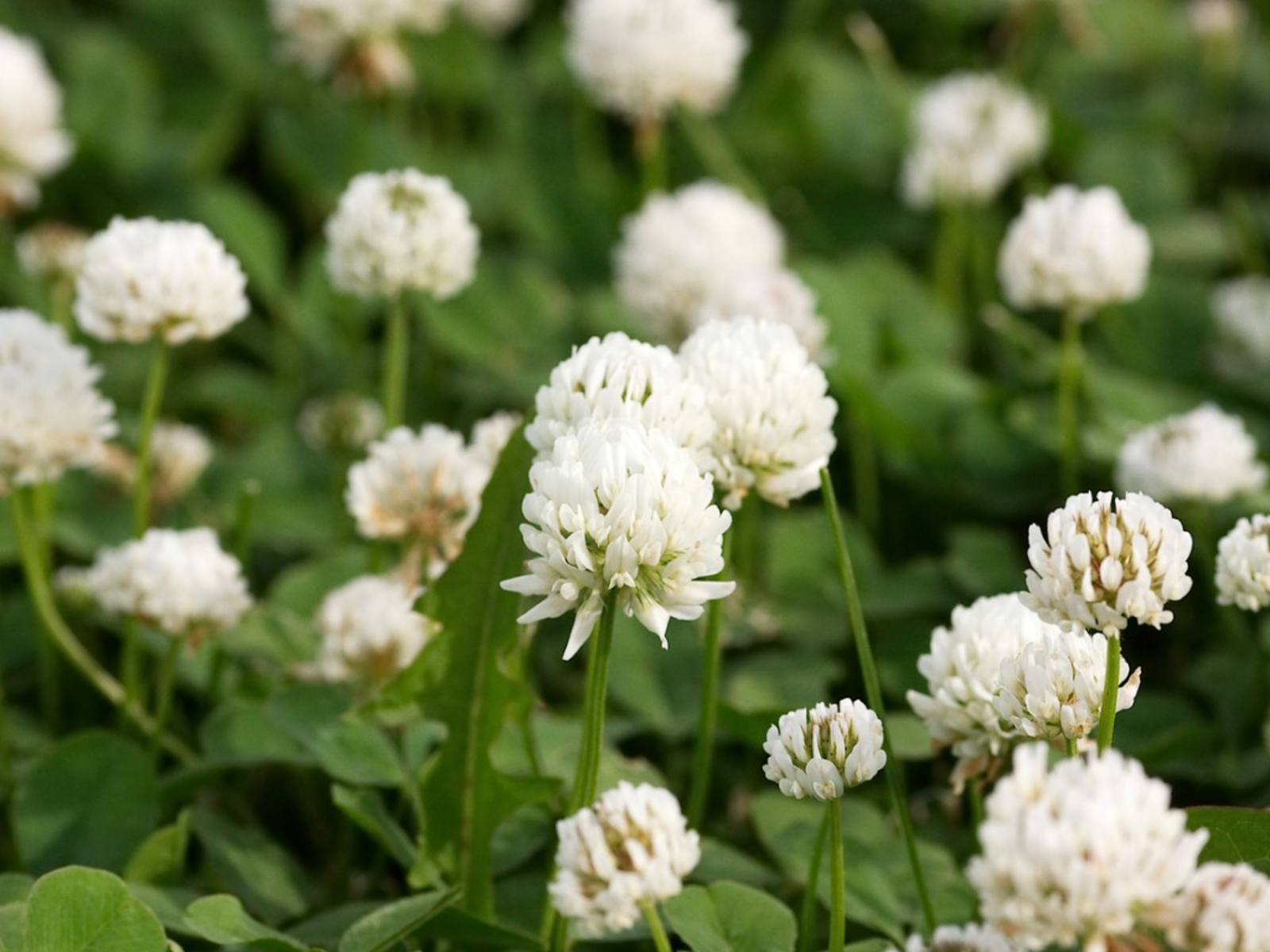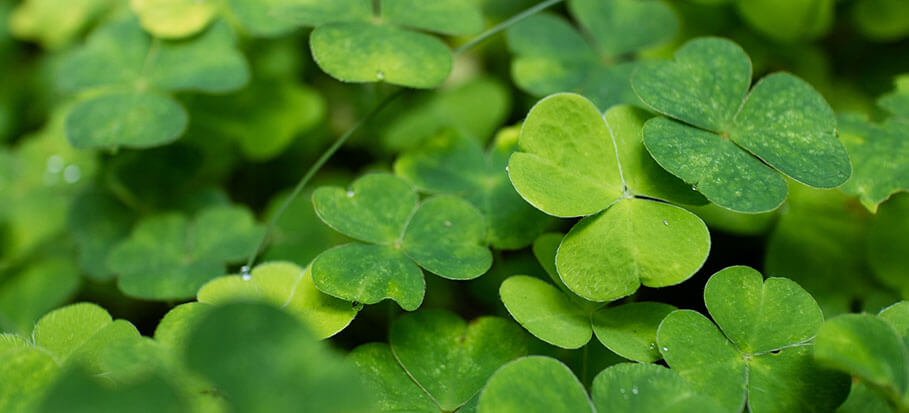
Beautiful lawns are doomed by tenacious weeds. Yet, although it’s pretty stubborn, clover is actually beneficial. When it breaks down, it releases nitrogen into the soil, which promotes grass growth. In fact, micro-clover is a welcomed addition to some grass blends, which are especially good for lawns.
The fact that so many tiny white clover flowers are poking through their field of green, however, simply irks many homeowners. Mowing it down only provides a temporary solution because clover always comes back quickly. So, if you’re determined to keep this three-leaved, herbaceous trespasser off your landscape, you’re in luck! Continue reading for simple home remedies to permanently eradicate clover.
Table of Contents
10 Easy-to-follow Remedies To Remove Clover
Clover can be exterminated with the right lawn care practices, such as proper watering and mowing techniques, as well as a variety of cunning tricks. Start by implementing one or more of the following time-tested suggestions.
Hand-remove It.
Avoid allowing clover to proliferate. Small clumps should be removed as soon as you see them by using a spade or your fingers to gently loosen the soil around the base and then pull the clover up. Get all of the roots, please.
Deny It Oxygen And Sunlight.
Depriving clover of sunlight and oxygen is a natural way to get rid of it on your lawn. Clover should be covered with plastic sheeting, preferably a garbage bag, with the corners secured to prevent wind from blowing it away. If you use this method on large clover patches, the weed should be killed in a few weeks; however, if you use it on nearby grass, the surrounding grass may suffer collateral damage.
Use A Homemade Solution As A Smothering Agent.
A natural weed-control method that works well for many gardeners is this: Clover clumps can be spot-treated with a solution of vinegar and dish soap that has been combined in a spray bottle. Just be cautious around nearby plants.
Use Corn Gluten To Kill It.
Corn gluten meal, which is obtainable online and at your neighborhood garden center, can prevent the growth of clover without endangering nearby plants. It causes the soil to release organic dipeptides that dry out clover seeds and make it harder for them to sprout. For every 1,000 square feet of lawn, spread 20 pounds of corn gluten meal, give it plenty of water, and let it air dry.
Use An Herbicide To Fight Back.
Broadleaf herbicides are effective if you need to use force to eradicate clover. Dichlorophenoxyacetic acid, Mecoprop, and Dicamba are common ingredients in these weed control products. These chemicals interfere with normal plant growth patterns and cause the weeds to twist, cup their leaves, and crack their stems. Despite the fact that these herbicides don’t harm the grass around them, they can harm some garden plants and insects, so it’s best to spot treat clover rather than spray it all over.

Use Nitrogen To Extinguish It.
In general, a fertilized lawn deters the growth of all weeds, but ensuring adequate nitrogen levels will give you a distinct advantage over clover. Since clover can produce its own nitrogen, it has an advantage over a lawn that is low in nitrogen, which enables this weed to flourish. Make use of a weed-and-feed formula high in nitrogen. If your lawn is becoming overrun with clover, choose a standard fertilizer that is not slow-release. Organic fertilizers might work if you only have a small amount of clover.
Mow The Grass Higher Than 3 Inches.
While some people really prefer the look and feel of short turf, keeping your lawn a little longer can help control the clover problem. Clover has a shallow root system and a low growth rate. The taller grass can therefore effectively block sunlight from reaching the clover if you raise your mower deck and maintain grass that is 3 inches or higher. This assists in limiting the growth and spread of clover on your lawn.
Kill Clover Naturally
Check out the natural weed killer A.D.I.O.S. if you’d prefer to stay away from chemical herbicides. Use this natural, odorless, non-toxic selective weed killer away from people, animals, crops, and water bodies. Healthy grass won’t be harmed by it, but it weakens and kills clover. Spray it directly on unwanted weeds like dandelion, ground ivy, lamb quarters, and yellow mustard as well as clover. Additionally, it might be effective against ragweed, bittersweet, poison ivy, sumac, buckthorn, and other noxious and invasive species.
Water Appropriately.
One way to stop clover growth is to keep the ideal moisture level. However, thirsty grass is typically stressed out, which invites weeds as well. Too-wet turf is the ideal environment for weed seed germination. While the type of grass you have and your soil will determine how much water you should apply, gardening experts advise monitoring your lawn rather than installing an irrigation system and then forgetting about it. As a general rule, water deeply once or twice a week. However, you should only water when the lawn appears dry or when growth appears to be stagnant.
Plant Seeds In Those Bald Spots.
There might be bare spots on your lawn that are even less attractive than the weeds once you’ve eliminated the clover patches. As soon as possible, spread the grass seed and cover it with a thin layer of mulch. Regularly watering the grass seed will encourage new growth, and fertilizing and mowing your lawn as directed will prevent clover from reappearing.
How To Prevent Clover
You can stop clover from ever appearing on your lawn by taking a variety of measures.
Use Corn Meal Gluten
The clover cannot grow because the gluten in corn meal releases organic peptides into the soil. Be careful not to use this method if you recently reseeded your lawn because it won’t work on existing clover but will indiscriminately stop new seeds from sprouting.
Fortunately, this action won’t harm the local grass that already exists. You can buy corn gluten meals online or at your neighborhood garden store.
Spread Organic Fertilizer
Your lawn will be less conducive to clover if you use organic, slow-release fertilizer that is high in nitrogen. Because it costs less and grows grass more quickly, some homeowners prefer conventional, fast-release fertilizer. However, using organic fertilizer will result in longer-term, healthier growth. Cow manure, guano, blood meal, bone meal, earthworm castings, and liquid kelp are examples of typical organic fertilizers.
Mow Grass High
The best grass for growing clover is less than three inches tall. This height strains your grass, which facilitates clover spread. By keeping your grass cut high, you give it an advantage and make it simpler for it to compete with the clover.
Why You May Want To Keep Clover In Your Lawn
Clover may have an unattractive appearance, but it has advantages for your lawn.
- Natural Fertilizer: Clover can take in nitrogen from the atmosphere thanks to its symbiotic relationship with helpful bacteria. Your lawn may become greener and lusher as a result. This will keep it growing, though, and it will continue to outcompete your grass.
- Weed Prevention: Clover and other weeds cannot grow on a lawn that has been mowed high. But letting clover flourish is a good choice if you prefer neat, short grass that is under 3 inches long. The soil is shaded by the leaves of the clover, making it difficult for other weeds to establish themselves, grow, and compete with your grass.